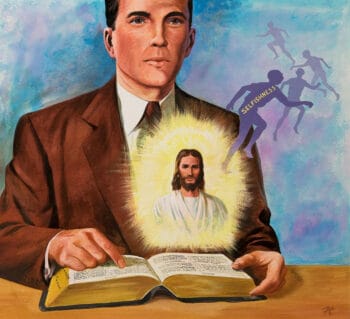Daily Lesson for Monday 2nd of March 2026
The theme of Colossians is one of the clearest maxims for living the Christian life: “As you therefore have received Christ Jesus the Lord, so walk in Him” (Colossians 2:6, NKJV). We receive salvation by receiving a Person, not just a body of teachings. But receiving Jesus also includes accepting all His teachings, as given through the apostles and prophets of the Bible (see Ephesians 2:20).
More than anything else, accepting Christ means a death to self, a complete surrender of self to the living Christ.
The Living Word (Jesus) cannot be separated from the Written Word (the Bible). They are two sides of the same coin. In fact, only through Scripture can we know Jesus. We “walk” or live our lives “in Him,” meaning that we allow His Word and His Spirit to guide us in all our decisions and practices.
In Colossians 2:7, Paul employs a common biblical metaphor that likens Christians to plants. We become rooted in Christ by accepting Him as our Savior and ordering our life according to His Word. That is how we become “established in the faith.”
How do the following passages illuminate the plant metaphor as a symbol of believers? (See Isaiah 61:3, Matthew 3:10, Luke 8:11-15, 1 Corinthians 3:6.)
Paul clearly delineates the two alternatives open to believers. One is to remain a “planting of the Lord” (Isaiah 61:3) and continue being complete in Christ by holding on to Him and His teachings. The other could be likened to an artificial plant that may look real but is actually lifeless. By adopting human philosophies and traditions, we are taken “captive” (Colossians 2:8, ESV). Although Christ has set us free, it is possible to be enslaved again with a yoke of bondage (Galatians 5:1; compare Acts 15:10).
In short, accepting unbiblical teachings means rejecting Christ, because those who buy into false teachings have, unfortunately, adopted a different gospel and have accepted human authorities over the authority of Scripture (see Galatians 1:6-9). This was a danger in the early church and remains so today.
|
What has been your own experience with what it means to die to self in order to receive Christ? Why must that be a continual process? |




